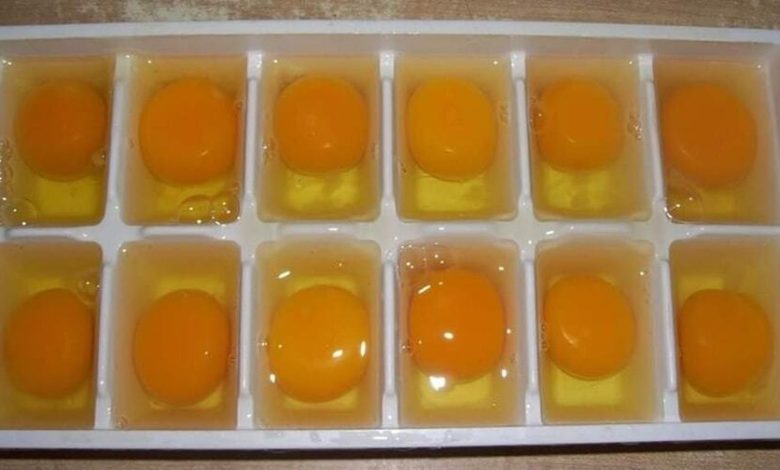
Freezing Eggs
Freezing eggs can be a valuable asset to any home cook. Whether you’ve scored a fantastic deal on eggs, have a surplus from your own backyard flock, or simply want to streamline your meal prep, freezing eggs offers a convenient way to extend their shelf life and ensure you always have them on hand.
This guide will provide a step-by-step method for freezing eggs for later use in baking and cooking. By understanding the process and proper storage techniques, you can confidently incorporate frozen eggs into your culinary repertoire, saving time and reducing food waste.
Note 1: While freezing eggs is generally safe, it’s important to understand that the texture and quality may be slightly altered compared to fresh eggs.
Note 2: Eggs cannot be frozen in their shells.
Ingredients:
| Ingredient | Quantity |
|---|---|
| Eggs | As needed |
Instructions:
- Crack the eggs: Crack a single egg into each slot of an ice cube tray.
- Freeze: Place the tray in the freezer until the eggs are completely solid.
- Transfer: Once frozen, carefully pop the frozen egg cubes out of the tray.
- Store: Place the frozen egg cubes in a zip-top freezer bag.
- Thaw: To use, place the desired number of frozen egg cubes in a bowl at room temperature to thaw.
Storage: Frozen eggs can be stored for up to 3 months, or potentially as long as 1 year.
Enjoy!
Tips:
- Use frozen eggs in recipes that call for beaten or cooked eggs, such as baking, scrambled eggs, and omelets.
- Avoid using frozen eggs in recipes that require raw eggs, such as Caesar dressing or homemade mayonnaise.





